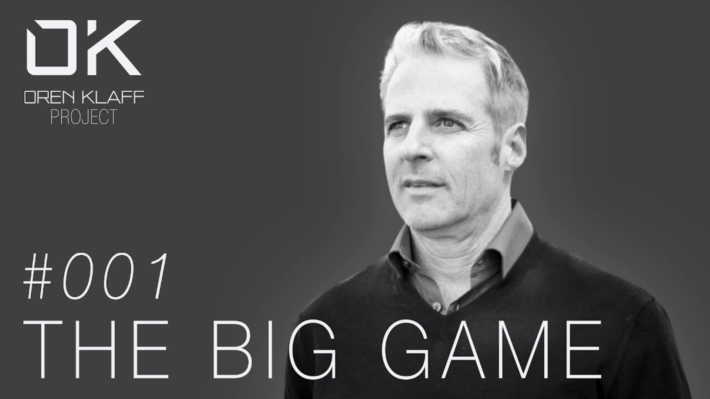Coping Mechanisms – How Humans Find Balance In Life

Over the years, I’ve been fascinated to learn about the various coping mechanisms that humans have used over time.
Here is how the first page of Google defines coping mechanisms:
| Coping mechanisms are ways in which external or internal stress is managed, adapted to, or acted upon. |
Much like you, I have found myself trying various coping mechanisms over the years.
Some have helped, others haven’t.
Everyone knows a person who has found all the wrong coping mechanisms – you may be able to find them on your local street corner.
Conversely, we all know a person who used a great coping mechanism to positively change their life.
This lead me to some research – I wanted to find out where these good and bad coping mechanisms were rooted.
So I set out to find the ULTIMATE list of coping mechanisms. I wanted to build the go-to playbook for day-to-day coping.
So that’s what I did.
But first, before we discuss how to positively cope with our day-to-day stresses, let’s go back to the beginning of mankind when coping mechanisms were conceived.
Back at the beginning of time…. just kidding. I’m not qualified to tell you about the beginning of time, so let’s start here.
When we were cavemen, the world was quite simple but very dangerous.
We had to satisfy the base of Maslow’s Hierarchy of Needs: food, water, shelter, sleep, warmth, security, and safety. If you were a caveman, these were the core assets you needed to acquire to stay alive. Everything else was secondary.
People were asking themselves questions like:
- Can I kill it? (or will it kill me?)
- Can I eat it? (or drink it?)
- Can I mate with it? (or does it want to mate with me?)
- Do I need to run? (or can it protect me and my family?)
These are the questions we were trying to answer 10,000+ years ago.
In order to answer these questions and have positive outcomes, you had to fight for what you wanted. Nothing was given, and everything was earned. You eat what you kill, or starve and die.
So, aggression became the first coping mechanism that man discovered.
When we started to feel and encounter things that were not liked or understood, we became aggressive because we associated aggression with the things we desired: food, water, sex, shelter, safety, etc.
In order for us to keep the assets we had, we also had to focus on protecting them. If we didn’t aggressively protect the things that satisfied our needs, we would end up dead.
Mankind became addicted to aggression and protection. In fact, addiction became the next coping mechanism that helped us satisfy our needs.
We became addicted to the satisfaction of our basic needs. Addicted to the certainty that we would have all the pleasures we were used to, and avoid the pain we so desperately evaded. This addiction to the satisfaction of our basic needs is what satisfies us at the most primal level.
These coping mechanisms are what feed our reptilian brain. This is the part of the brain that is responsible for keeping us alive. It regulates the innate and automatic self-preserving behavior patterns. These are the impulses that dictate our ability to survive.
Now that we understand the coping mechanisms that our ancestors used to satisfy their basic needs, we can better understand the social coping mechanisms that developed thereafter. Most of the brain activity that meets our social needs comes from our limbic brain (or mid-brain).
Not too long after aggression became the core of the primal human coping mechanism, the need for relationships and status became a key driver of our decision-making. As I’m sure you can understand, aggression does not mix well with relationships and status. In fact, this is what started to create the early internal conflicts of mankind.
These social coping mechanisms became extremely conflictive with a human’s ability to attain happiness.
Here are just a few of the social coping mechanisms that early humans started to develop.
- Avoiding people we didn’t want to speak to, and situations we didn’t want to be in.
- Defensiveness when we were wrong to avoid hurting our ego and status amongst others.
- Suppression (or repression) in fear that we would be judged, and our social and primal needs would not continue to be met.
- Displacement when anger could not be expressed to the individual who exasperated a situation, it was taken out on another human.
- Regression to bring back old states of being that feel more comforting to the individual.
- Fantasizing so that we could avoid reality and find a safe space in our minds.
- Rationalization to give reason to unjust actions, usually in the pursuit of power, status, or resources.
We must remember that thousands of years ago, a class system separated the ‘haves’ from the ‘have-nots.’
The people with all the resources were able to do things that the workers and slaves couldn’t. Bottom line. This means that royalty and government officials were able to cope in ways that people without resources couldn’t.
One of the first physical coping mechanisms that most humans aspired to attain was wine. Wine became a vehicle for human connection. Some of the oldest pictures of mankind were of people eating and talking around a table while drinking wine.
Wine became a coping mechanism because humans found that others were much more likable when everyone was a little under the influence.
This further perpetuated a whole new set of coping mechanisms for mankind to attach to.
- Acting out with outlandish actions instead of reflecting upon internal feelings.
- Humor became more prevalent because people were more apt to point out the funny and ironic intricacies of a situation.
- Affiliation with like-minded people, as people who drank wanted to hang around others who did the same.
This type of affiliation is on a social level, not a primal level. On a primal level, we have to associate with others or else we will die out in the wilderness by ourselves.
On a social level, we affiliate because others who act like us provide external validation that our actions are appropriate.
Since we live in the 21st century, it’s easy to see now that affiliation and association create polarization. The separation of you from me comes about through labels. And, when we start interacting with those who have different labels than ourselves, we encounter a whole new set of coping mechanisms to deal with.
- Denial that others could be right, or that challenging our own beliefs could actually be healthy for us, instead of detrimental to our ego.
- Projecting by taking our own unacceptable thoughts, feelings, and behaviors and attributing them to others.
- Intellectualization by coming up with logical deductions to avoid emotional and social conflicts.
- Passive aggression by avoiding direct conflict by creating indirect resistance.
As you can see, humans started to use some very devious tools to distract from the REAL problems they were facing.
I hope that this gives you some perspective and insight as to how the most primal instincts of our ancestors have turned into social constructs passed down from generation to generation. Unfortunately, the most addicting and common coping mechanisms became the ones that were the most destructive.
Fast forward a few thousand years, and you’ll find that since most humans are able to satisfy their basic and social needs, the focus has shifted to self-actualization. People today will do anything to hit their social, creative, and intellectual potential since most aren’t afraid of losing their basic everyday needs.
The coping mechanisms that we use to obtain self-actualization are correlated to the outermost part of our brain – the neocortex.
We started to abuse things that weren’t meant to be abused. Things like:
- Drugs
- Alcohol
- Steroids
- Social media (and technology)
- Work / Profession
- Pornography
These are all forms of substance abuse. Our culture literally invented new ways to cope with our problems. If that doesn’t tell you how motivated people are to cope with the daily stresses of life, I don’t know what will.
The destructive coping mechanisms are the ones that people tend to get caught up in. I speak about these not to impress them upon you, but to bring to light how and why people cope the way they cope.
We have self-perpetuated these negative coping mechanisms that mentally, physically, emotionally, and spiritually limit and suppress our greatest ideals. We search to remove the pain from our lives, but quite often, we’re just putting pressure upon ourselves. We self-sabotage our ability to self-actualize by creating a toxic internal environment.
- We’re defensive when we know we’re wrong.
- We’re tolerant when we know that something isn’t acceptable.
- We overcompensate when we don’t get enough of something we want.
- We even harm ourselves by telling ourselves that we’re not worthy, undeserving, or valueless. The feeling that we’re not ‘enough’ is what hurts us more than anything.
We self-destruct by drowning in the coping mechanisms that have been passed on to us by previous generations. We simply accept that the way to go about life is to avoid anything uncomfortable by coping with something that makes us feel better.
This can be used both for good and bad.
The only problem is, most people don’t get what they want because they spend too much time focusing on what they don’t want.
Because our brain is trained to focus on the things we want to avoid – we spend more time escaping the things we dislike, than moving toward the things we do like.
So, as I started to recognize this change in how humans were coping with their lives, mentally, physically, emotionally, and spiritually, I realized that there HAD to be ways that humans could reconnect with themselves. Humans can do positive things to bring themselves back to homeostasis, but for some reason, we tend to go with the more destructive option.
So, one day I decided to focus on becoming aware of all the things I was doing to cope in my day-to-day life.
I started to look for all the moments when I was getting stressed, and then sought to understand the coping mechanism that I would use to bring myself back to homeostasis.
What I quickly noticed was that all coping mechanisms were simply patterns. The repetitive nature of a coping mechanism gives our brain the certainty it needs to know that the outcome will be positive.
When I started to realize that all coping mechanisms (inputs) – elicited a predictable result (output) – I knew that the answers I was looking for were right in front of my face.
The first coping mechanism that I started to recognize in myself was my incessant need to wash my hands. Any time something stressful would happen, I would find myself telling myself that ‘my hands were dirty, and that if I just cleaned my hands, somehow everything would be better.’
So below I decided to list all the positive coping mechanisms I could possibly think of and their corresponding outputs.
There was only one guideline for this process. All positive coping mechanisms had to be free, and easily accessible by most humans.
| Coping Vehicles (Inputs) | Desirable Results / Outputs |
| Drinking water | Hydration, and cognitive efficiency |
| Taking 1-10 deep breaths | Clarity, Presence, and Relaxation |
| Going on a walk | Detachment, exploration, and peace |
| Stretching | Blood flow, extending beyond our limits |
| Visualizing | Focus, neuro-plasticity, and limitlessness |
| Smiling | Happiness, beauty, and magnetism |
| Learning something new | Amazed, proud, awe-struck, and triumphant |
| Loving | Abundance, freedom, and opportunity |
| Clapping | Happiness, acceptance, and excitement |
| Redefining a relationship | Contentment, maturity, and growth |
| Thinking of 3 things you’re grateful for | Appreciation, love, and optimism |
| Asking a question | Inquisitiveness, curiosity, and foresight |
| Writing down your feelings | Understanding, expressing, and awareness |
| Calling (or seeing) an old friend | Relatableness, understanding, and appreciation |
| Listening to (or find new) music | Connection, transcendence, mood, and love |
| Eating healthy | Live a healthy life… |
| Meditating | Download, release, relax, feel, and be |
| Taking a deep breath and counting to 5 | Recalibration, calm, and tranquility |
| Finding a mentor (digital, or physical) | Insight, perspective, opportunity, and enlightenment |
| Strategizing | Intellectualize, streamline, and clarity |
| Exercising | Energize, strengthen, develop, and persevere |
| Meeting a new friend | Enlightenment, confidence, and connection |
| Donating to the less fortunate | Generous, altruistic, purposeful, and helpful |
| Joining a club | Enrollment, acceptance, and understanding |
| Going to a library | Inquire, discover, listen, read, be, think, see |
| Cleaning | Revitalization, appreciation |
| Starting a new project | Creativity, utility, and satisfaction |
| Watching a movie or tv show (cautiously)* | Empathy, understanding, and relatableness |
| Completing something you’ve put off | Freedom, release, satisfaction, and calm |
| Studying and looking at the sky | Admiration, respect, inquisitiveness, and curiosity |
| Writing a letter that you’ll never send | Liberation, release, restraint, and tolerance |
| Reading a great book | Respect, accomplishment, success, and fulfillment |
| Asking for help from someone qualified | Quality insight, proper systems, and clear direction |
| Facing the problem | Bravery, fortitude, relief, and release |
| Starting (or revisiting) a good hobby | Fun, self-esteem boosting, creative |
| Playing team sports | Confidence, comradery, and power |
| Dancing | Dynamic, energetic, active, and freedom |
| Making a Pros vs Cons chart | Independence, and justice (or justification) |
| Sleeping (or taking a nap) | Restored, rested, refreshed, and reliable |
| Playing with an animal | Amused, humored, pleased, charmed, and loving |
| Writing or Journaling | Centered, balanced, congruent, and grounded |
| Painting, drawing, scribbling, or doodling | Artistic, independent, innocent, and childlike |
| Learning an instrument | Harmonious, brave, courageous |
| Putting your hands on your hips for 2 minutes | Power, confidence, certainty, and optimism |
| Taking a hot (or cold) shower | Reset, clean, well-being, and thriving |
| Performing a random act of kindness | Helpfulness, caring, devoted, inspired |
| Burning a piece of paper with a note on it | Released, relieved, |
| Writing a letter or sending an email or a text | Friendliness, receptiveness, and accommodation |
| Singing | Connected, carefree, easy-going |
| Hyper focusing on a meaningless object | Deep thought, curiosity, captivation, and stimulated |
| Exploring nature | Reconnecting, authentic, and genuineness |
| Talking to someone close to you | Confident, assured, comfortable |
| Feeding (or educating) another animal | Safety, stability, delight, euphoria, and caring |
| Memorizing something | Disciplined, self-reliant, patience, and fortitude |
| Writing an “I love you because…” letter | Gratitude, blessings, satisfaction, |
| Learning and using a new word | Attentive, insightful, victorious |
| Rearranging your environment | Resourceful, grateful, creative, and capable |
| Doing Yoga | Dynamic, powerful, strong, and triumphant |
| Giving someone a compliment | Positivity, encouragement, and loving |
| Being Authentic with someone | Honorable, moral, honest, and candor |
| Just being | Mindful, peaceful, present, and unconcerned |
| List: 3 month, 1 year, 10 year, + lifetime goals | Visionary, foresight, success, and opportunity |
| Holding Hands | Desirable, intertwined, and loved |
| Hugging | Touched, embraced, comforted, and liked |
| Laughing | Excitement, joy, enthusiastic, and exhilarated. |
| Connecting with a higher power | Transcendence, interconnectedness, and grounding |
Just the activity of creating this list has shown me that I have undoubtedly self-destructed and self-sabotaged my desired outcomes by prescribing myself the wrong coping mechanisms. Time and time again.
As I read through all of the coping mechanisms above, I’m awestruck by their simplicity.
These coping mechanisms are all free, they’re all doable by 90%+ of the planet at any given time.
The simple things are not necessarily easy, but this exercise has shown me that success is about doing the simple things that 90% of people forget to do on a daily basis.
All of the inputs, as I see them, are simply patterns. They’re habits, that when repeated over and over again create predictable emotional satisfaction.
As I started to fill in the outputs on the right-hand side. I was thinking about feelings, emotions, states of being, and desirable outcomes that would happen as a result of the corresponding coping mechanism. But, the ultimate output of any coping mechanism is a desirable emotional state.
If you want some outcome, and continue to ask yourself “why?” you will most likely arrive at the final conclusion: “because it feels good.”
Did we want the nice car? Or the feeling of power, confidence, certainty, and status?
This was an exercise in discovering our ability to attain the emotional states we desire in alternative ways.
Our cognitive capabilities allow us to consciously create the coping mechanisms that will elicit the emotional states we desire.
Neglecting to become aware of our damaging habits is allowing our genetic programming to control our day-to-day coping capabilities.
Now is the time for you to build out a customized set of coping strategies that you can leverage when you’re in search of desirable emotional states that you’re having a hard time attaining.
Here is a list of relevant questions to determine effective coping mechanisms.
- What are morning habits and activities that can serve as constructive coping mechanisms?
- What are afternoon habits and activities that can serve as constructive coping mechanisms?
- What are evening habits and activities that can serve as constructive coping mechanisms?
- What are habits and activities that can serve as constructive coping mechanisms during times of stress and anxiety?
- What are habits and activities that can serve as constructive coping mechanisms during times of conflict or anger?
- What are habits and activities that can serve as constructive coping mechanisms during times of depression or sadness?
- What are limiting habits and activities that currently serve as coping mechanisms that I need to consciously remove?
- If you could create a 15-minute routine that stacked multiple positive coping mechanisms, what would that look like?
Coping Mechanisms for Certain Situations
Unfortunately, one can recognize all the positive and negative coping mechanisms, but unless they are given the solution, they may continue to fall into the same old habits and patterns that got them to exactly to where they’re at.
So we wanted to make this as easy and straightforward as possible. Here is a simple guide of things to do when we feel limited by certain internal and external forces.
| When we’re sad-Laughing-Smiling-Playing with animals-Singing-Dancing-Listen to good music-Clapping-Think of 3 things you’re grateful for | When we’re anxious (Stressed)-Being authentic with someone-Writing or Journaling-Release from our attachments-Exercise -Paint or draw-Take a deep breath and count to 5 | When we can’t think clearly-List out your goals-Give someone a compliment-Take a shower-Go on a walk-Strategize-Read-Look up at the sky |
| When we feel lazy-Explore nature-Seek advice from a mentor figure-Face the problem-Cleaning-Eat Healthily-Complete something that’s been put off-Start a new project | When we feel stuck-Rearrange your environment-Learn something new-Ask for help (from someone qualified)-Focus on the next step-Complete something that has been put off-Talk to a close friend | When we feel unaccepted-Connecting to a higher power-Play team sports-Donate to the less fortunate-Start or revisit a good hobby-Join a club |
| When we feel unloved-Hugging and holding hands-Writing an “I love you because…” letter-Perform a random act of kindness-Give yourself love-Call an old friend | When we feel pessimistic-Visualize a positive outcome-Take a nap-Read a great book-Redefine one of our relationships-Write a letter that will never be sent | When we lack awareness-Meditate-Memorize something-Doing yoga-Just being-Be Curious-Write down your thoughts and feelings |
All a coping mechanism is doing is shifting your focus and creating a desirable internal and external environment.
So, if we’re feeling indecisive, we can shift our focus by:
- Making a Pros vs Cons chart
- Strategizing
- Learning new information
- Seeking external council
- Listening to our intuition
- Understanding how our decision will impact our ultimate outcome
It’s our ability to shift our focus that will determine our ability to choose positive coping mechanisms that will continue to drive our lives forward.
Naturally, there has to be an ultimate list. A list of patterns that helps us gain control and certainty is the core playbook for any situation, right?
So here is a list of the 10 easiest, most powerful coping mechanisms that can be used by anyone at any time in any place.
- Drink water – when we are dehydrated, our brain doesn’t function at 100%.
- Stretch – because proper blood circulation helps create desirable states of being.
- Take 10 deep breaths – to reset your thoughts, emotions, decisions, and actions.
- Put your hands on your hips for 2 minutes – to build confidence and certainty.
- Ask better questions – to approach situations from all possible angles.
- Find a virtual mentor or advisor – to get specific learning when it’s needed.
- Meet someone new – to connect in a way that allows others to see the best you.
- Read a great book / or learn something new – to satisfy your intellectual capacity.
- Go on a walk – to decompress and see that what we have to do is straightforward.
My Go-To Coping Mechanisms
Over the past decade or so, I have come up with little hacks that help me keep my biochemistry in check. This includes, but is not limited to:
- Drinking a full glass of water when I wake up. This provides natural energy.
- Working out 5-6 days a week. As the body moves, so does the mind.
- Eating good food. Get most of my calories from plants to stay energized.
- Supplements. Basic vitamins and minerals to enhance daily bodily functions.
- Reading / Writing. This input / output clears (and / or) fills my channel.
- Thinking of 3 things I’m grateful for when I wake up and before I go to sleep.
- Ending my showers with cold water.
- Meditating at least a few times a week.
8 Coping Mechanisms That I Find Effective
Your Opportunity
It’s time for you to get honest with yourself and give your mind, body, and spirit the resources it needs to thrive. This all starts with changing the habits we have to cope with the day’s ups and downs.
What are the negative coping mechanisms you need to get rid of?
What are the positive coping mechanisms that you could benefit from using?
Better understanding our coping mechanisms is the key to attaining everything we’ve ever wanted.
With Love,
-Jesse




